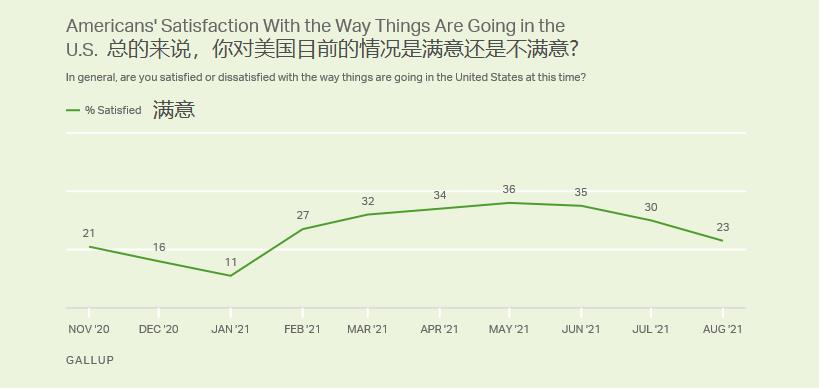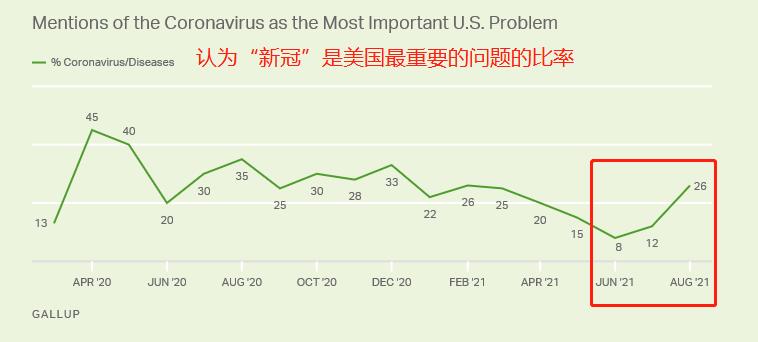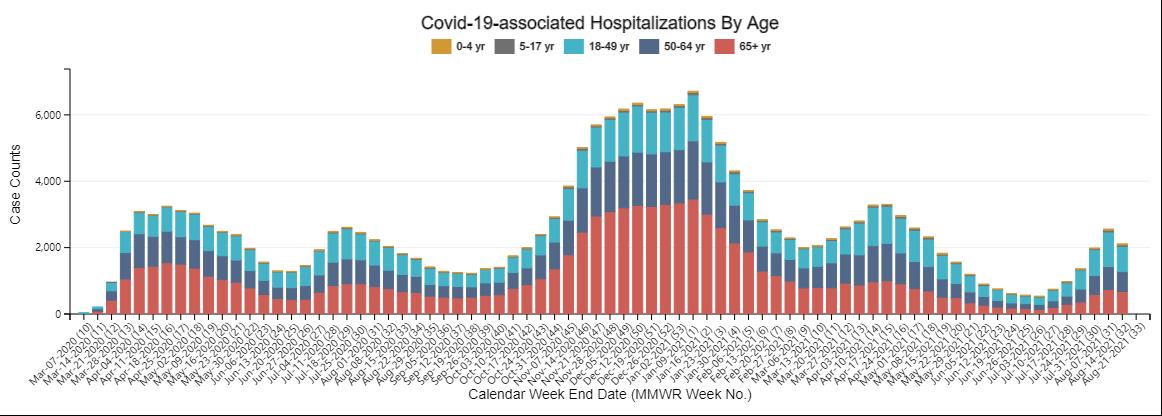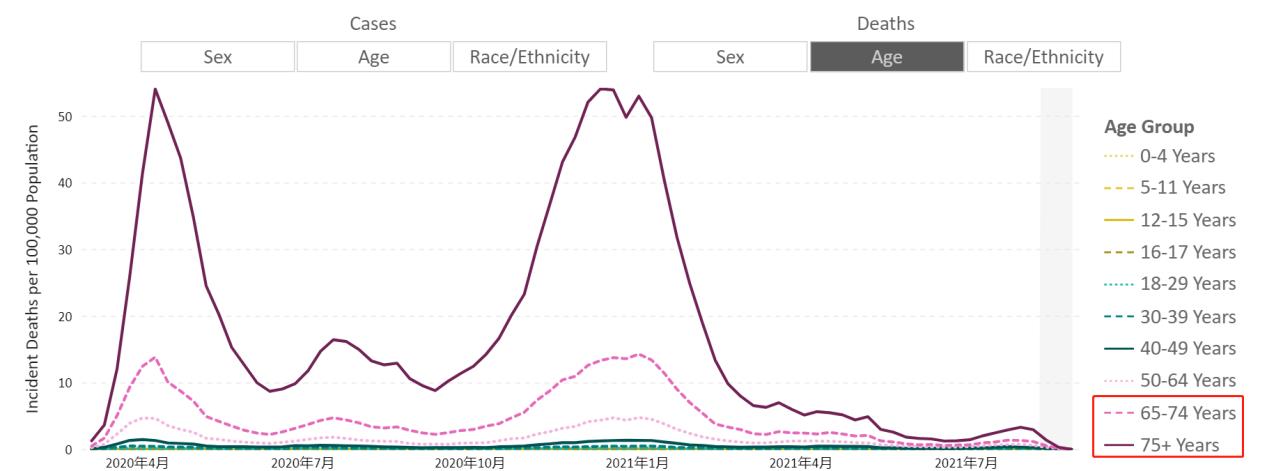Cctv news(Reporter Xu Yeqing): Recently, "Delta" swept across the United States. According to the data of the Centers for Disease Control and Prevention (CDC), at present, there are nearly 130,000 new cases in the United States every day. At the key point of epidemic prevention, the American people gradually showed "dissatisfaction" with the country, and even a "crisis of trust" appeared.
Worried about the deterioration of the epidemic: the American people are more dissatisfied with the country.
According to a report released by Gallup, an authoritative polling agency, with the surge in confirmed cases of COVID-19 in the United States, American people’s satisfaction with the United States dropped to 23% this month, down by 7 percentage points from the previous month, which is the lowest value since Biden took office as President of the United States.

American people’s satisfaction with the United States fell to 23% (Source: Gallup)
At the beginning of 2021, American people’s satisfaction dropped to the lowest level (11%) in 10 years. According to Gallup’s analysis, this was due to the dual influence of "COVID-19" and "thugs rushing into Congress". With the relief of the epidemic in the United States, satisfaction began to rise gradually, and at the same time, Americans’ attention to "COVID-19" fell to the lowest point (8%) since statistics were available.

In August, 26% of American adult respondents believed that "COVID-19" was the primary problem facing the United States (Source: Gallup).
However, the good times didn’t last long. The "Delta" epidemic caused the number of confirmed cases in the United States to surge in early July, and people’s satisfaction declined one after another. The "COVID-19" once again became the "most urgent issue" considered by the American people.
The number of hospitalizations and deaths is "far ahead": the elderly are reluctant to vaccinate because of "distrust"
It is understood that at the end of the Gallup poll, many hospitals in the United States were almost "full". According to data from the US Department of Health and Human Services, as of August 12, about one-fifth of ICU beds were occupied.Over 95%. According to the data released by the US Centers for Disease Control and Prevention, it is not difficult to find that the total number of hospitalized patients over the age of 65 far exceeds that of the younger group.

The number of people hospitalized for "COVID-19" in the United States at all ages (Source: CDC)
In addition, according to the data of the US Centers for Disease Control and Prevention, since the outbreak, the vast majority of patients who died of "COVID-19" are over 65 years old. David Dowdy, an epidemiologist of infectious diseases at Johns Hopkins University, said that although the proportion of young people who have not been vaccinated has increased recently, older people are at greater risk of death. According to US media reports, there are still some elderly people in the United States who are not vaccinated — — Especially in the southern and western mountainous areas, the elderly who are not fully vaccinated account for more than 10% of the total population.

Most people who died in "COVID-19" were over 65 years old (Source: CDC).
Why are these elderly people still not vaccinated in time and put themselves in a "high-risk" environment with no beds and easy death? Public health experts said that apart from the fact that it is difficult to get vaccines in some rural areas, it is still a problem to get the first dose of vaccine for the elderly in the United States, because people who really want to get vaccines have already been vaccinated.
"We are really trying to get them vaccinated," said Molly Howell, director of immunization at the North Dakota Department of Health. Health officials in her area have sent letters to all unvaccinated elderly people in the state, but "people seem to lack trust in public health and the government, even in medical professionals."
关于作者